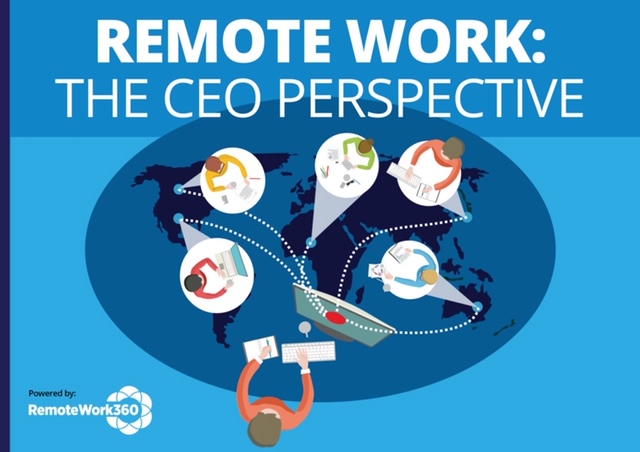Managing Remote Finance Teams
- Home
- Supplier Directory
- Attendance & Monitoring
- Collaboration & Communication
- Cloud Telephony & VOIP
- Collaboration & Secure File Sharing
- Communication Software
- Creative Tools
- Culture Building
- Interactive presentations/screen sharing
- Messaging Tools
- Online Training
- Productivity
- Project Management
- Shared workspaces
- Time Tracking
- Video Conferencing
- Virtual Water Cooler
- Web Developer tools
- Finance/Accounting
- HR/Talent Management
- IT
- Managing Remote Teams
- Productivity
- Project Management
- Remote Workplace Wellness
- Sales & Marketing
- eNewsletter
- Events / Education
- About Us
- News
Finance/Accounting
ByHeidi Williams
Remote Work Will Be a Permanent Fixture For Many Finance Teams
Employee polls continue to return the same results across the board – employers do not expect employees to return to the office full-time, even once lockdowns have ended, and employees overwhelmingly do not want to return to the office full-time, with a significant proportion clearly stating that they want to work remotely at least part of the time.
What adjustments do finance teams need to make, as the transition to remote or remote-friendly workforces becomes the norm?
Here’s our 5 top tips to managing remote finance teams;
Payroll – upskill or outsource
Payroll is a key component of most finance teams, and paying employees who work remotely requires a broader understanding of the regulations and restrictions involved in paying employees who are working in different countries or states. Many businesses have created temporary work-arounds, enabling them to pay a handful of distributed workers. As businesses move toward more flexible remote policies, which might see members of their workforces moving to different countries in response, you will need to get your payroll team skilled-up and/or be looking for more robust partner solutions to manage distributed worker’s payroll
Re-imagine core finance processes
With ongoing mandated closures of businesses as a result of Covid, any business managing paper-based invoicing or checks and requiring manual processing will be at a considerable disadvantage. The future for finance is digital. And automated. Finance teams will need to reconsider their entire finance processes, to enable every element of their workflow to be operated remotely – from central data stores and secure file storage, to digitized invoicing systems, online banking and a framework for ledgers which interfaces with the banking systems – digital transformation – indeed, rapid digital transformation is critical for finance teams operating remotely, to be able to fully adapt.
Choose the right collaborative tech solutions
Finance professionals are overwhelmingly relying on video conferencing solutions like zoom or teams, combined with an asynchronous communications/project management tool like Slack. And these are great tools to support finance teams working remotely. Budget reviews are complex and highly iterative, usually with input from multiple stakeholders – finance teams need to put in place the right workflow software and video conferencing/project management solutions to enable stakeholders to access, analyse and edit data and reports.
But, in many organizations the finance team is comprised of a wide range of staff with varying levels of skill and experience – in an office environment, more junior team members would have been supported as a matter of course and would have naturally “soaked” up some of the processes and procedures, and, if unsure would have leant across their desk to check. Now that your finance team is not together, you need to ensure you have processes and practices in place to support employees with varying levels of experience – from more junior staff who need mentoring, through to more senior employees who might have been on course for promotion and may now be feeling somewhat neglected as the focus shifts to output.
A virtual office platform could be a valuable solution for finance teams that are feeling disconnected, working remotely. A virtual office platform replicates a real-life office in having virtual rooms or areas where employees can come together and collaborate. It can be particularly powerful for large teams which have junior members requiring mentoring, as you can essentially re-create the “drop in” convenience of leaning over a desk to ask a question, which is missing for many remote workers. Ensuring your finance staff are set up to work collaboratively and supportively can make a real difference in keeping errors low and improving employee engagement and satisfaction.
Nurture a supportive and collaborative environment
A key ingredient of finance team’s success – is transparency, and what has often been called “psychological safety”. Psychological safety refers to the ability of employees to make decisions and feel that they have their backs covered, by colleagues and bosses. Employees who feel “safe” to make decisions are more engaged, more productive and more successful at their jobs. It’s the opposite to a blame-culture in which employees must go to great lengths to conceal errors and subvert blame elsewhere.
The exact framework will be different for each business, but agreeing specified touch-points and regular discussions, setting up mentors or buddy-systems, agreeing effective channels of communication, setting the bar on expectations – all of these actions contribute toward a supported and therefore successful remote finance team.
Related Posts
An estimated 86.3% of San Francisco employees are working from home, the highest rate among 10 major ...
May 11, 2021
In the third instalment of her blog - you can catch the first, on maintaining creativity here and ...
January 22, 2021
The different “kinds” of remote: finding the right fit your business Covid-19 has turned our world ...
January 14, 2021
RemoteWork360
RemoteWork360.com is powered by Chief Executive Group, which exists to improve the performance of business leaders, build communities and strengthen society.
Latest Insights
COPYRIGHT ©2020 REMOTEWORK360. ALL RIGHTS RESERVED.



